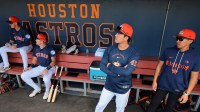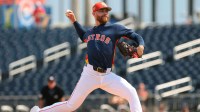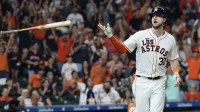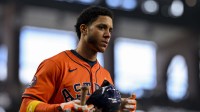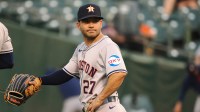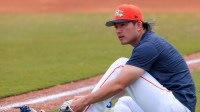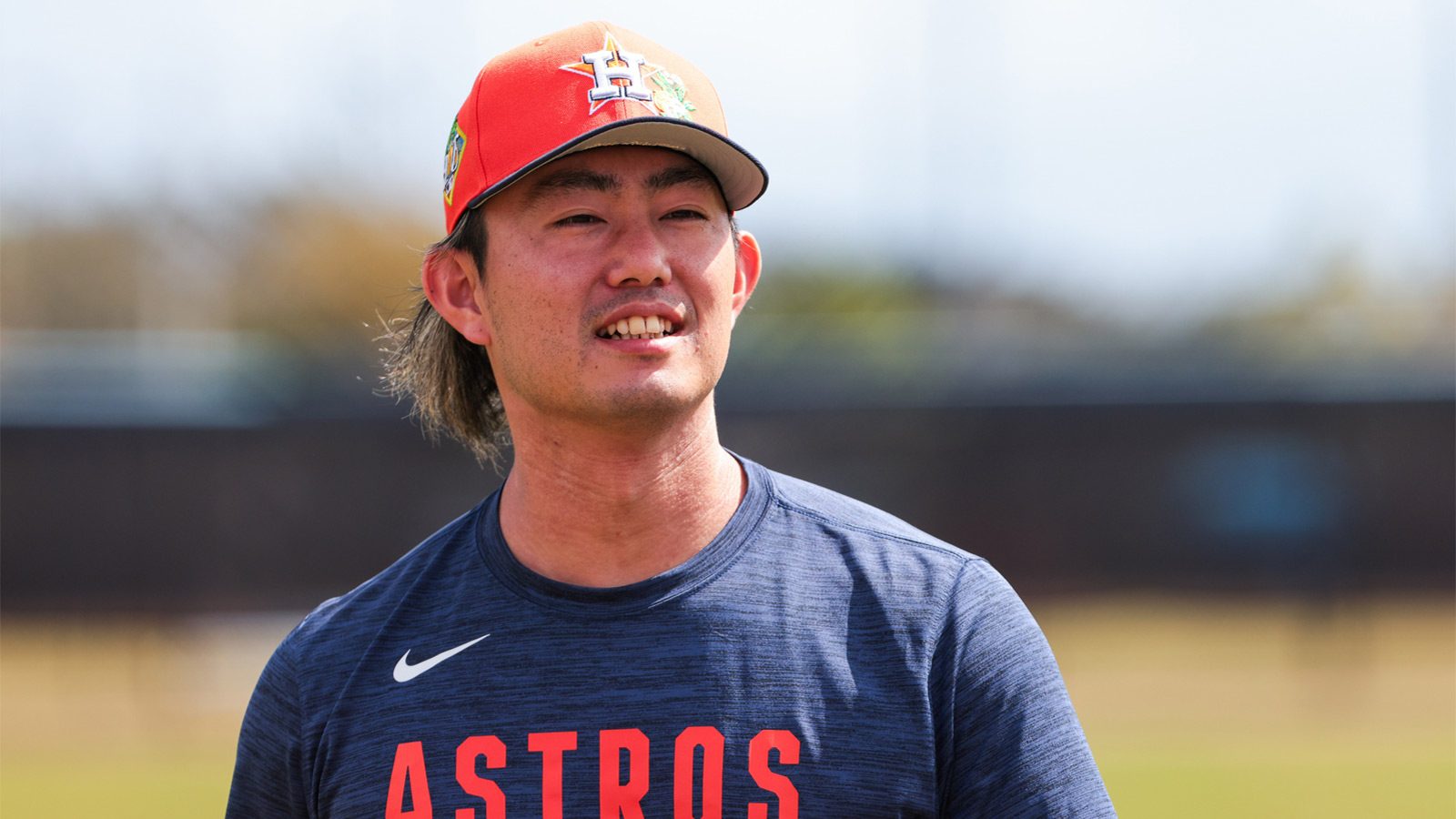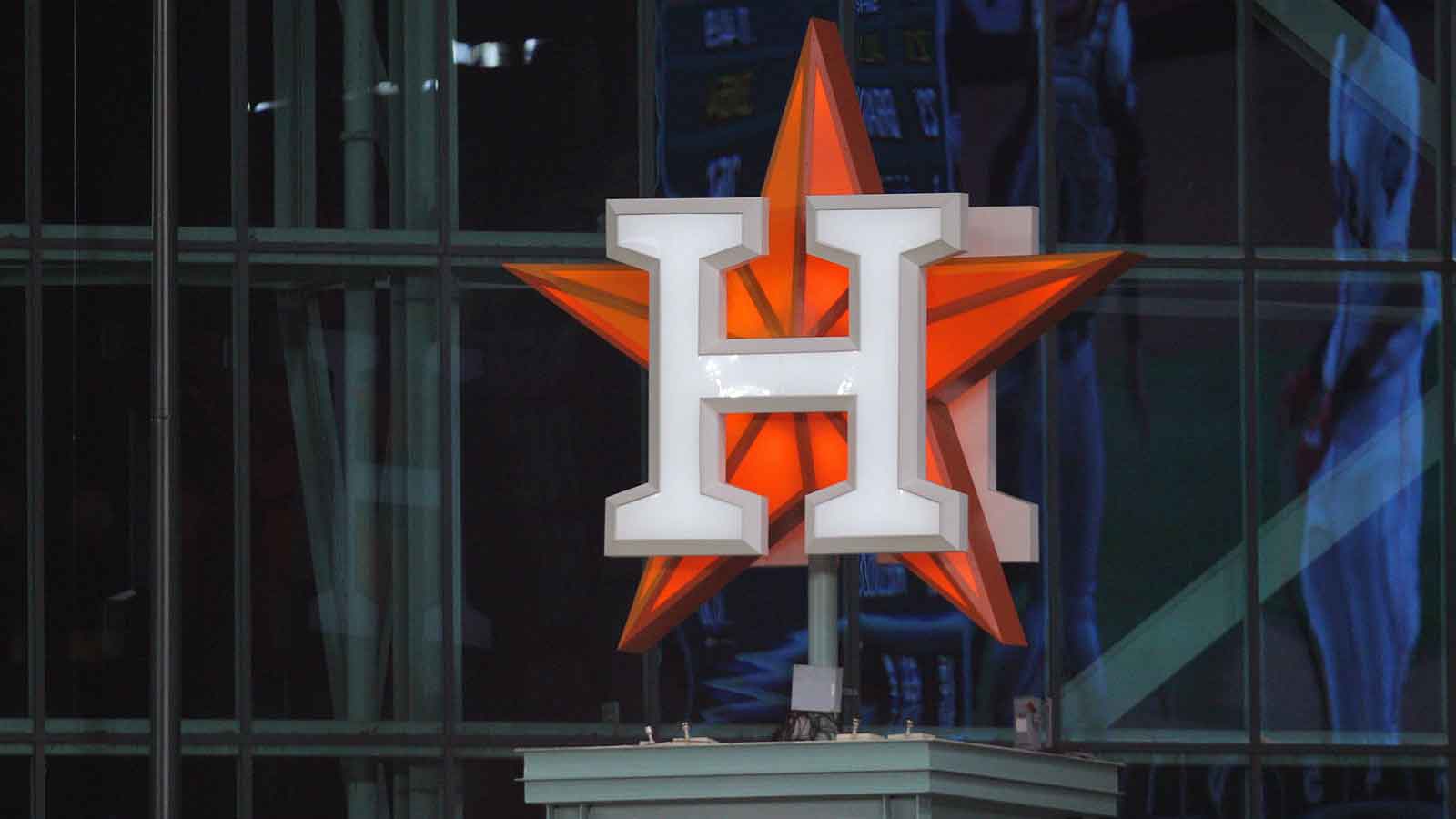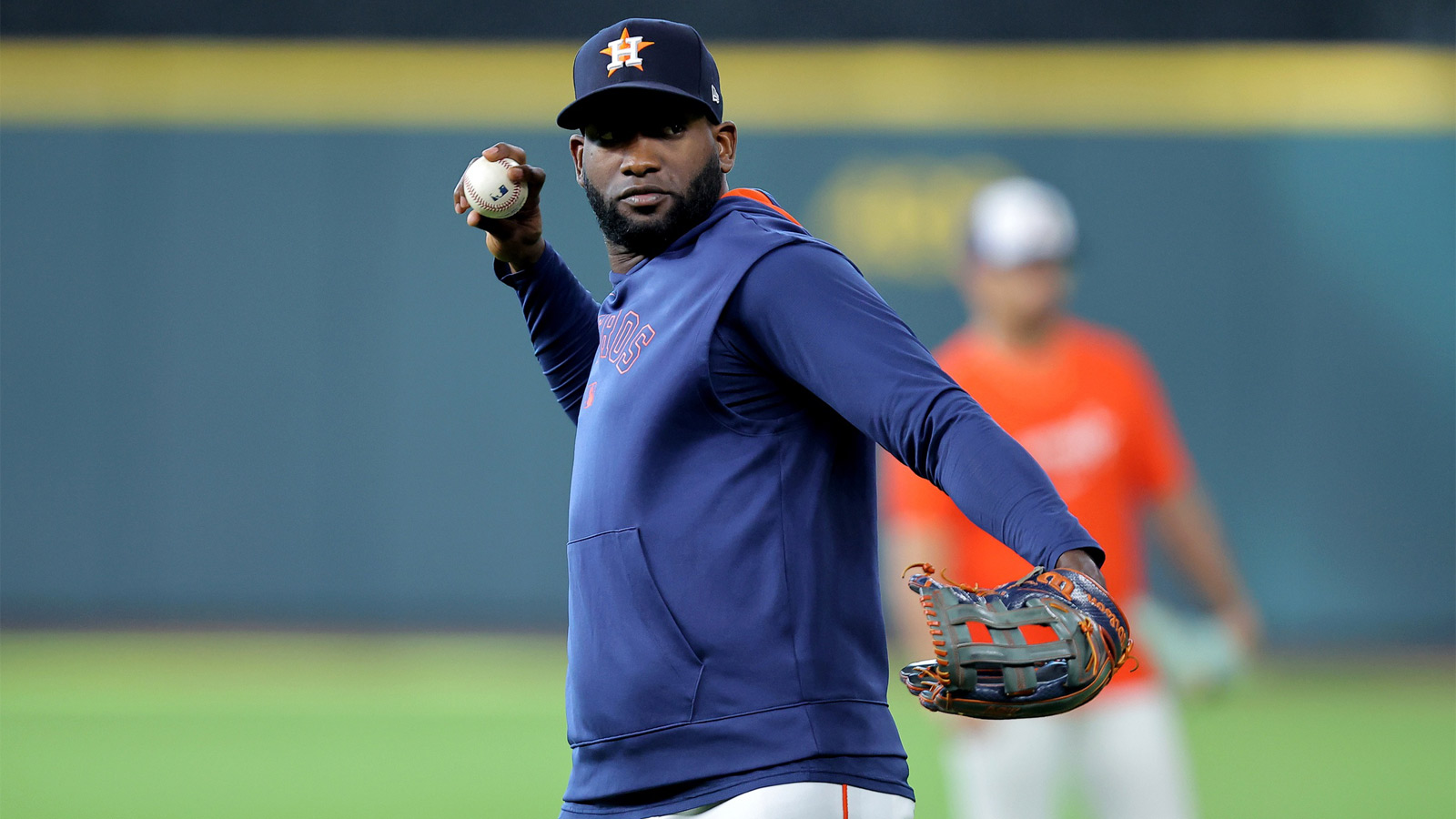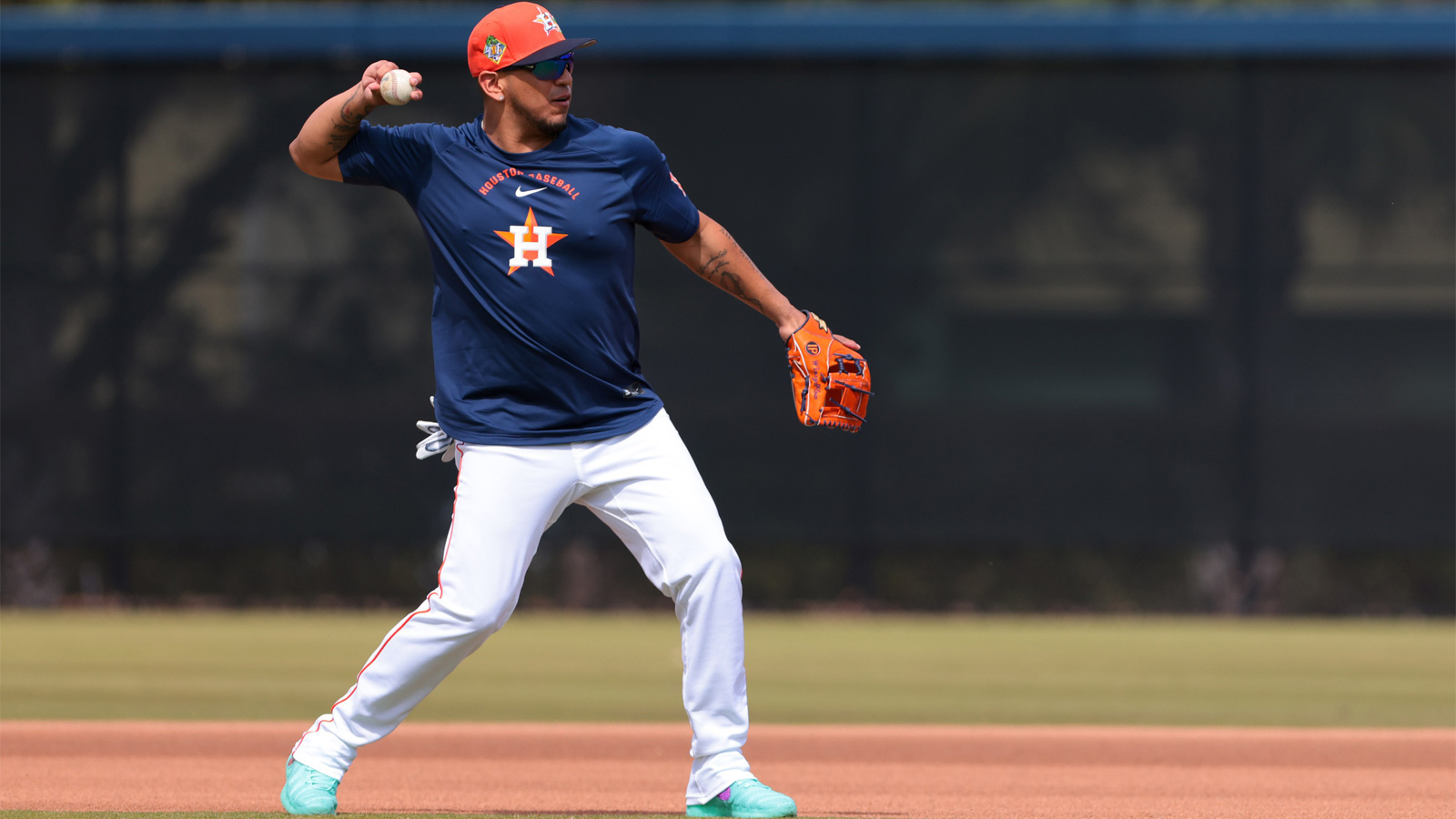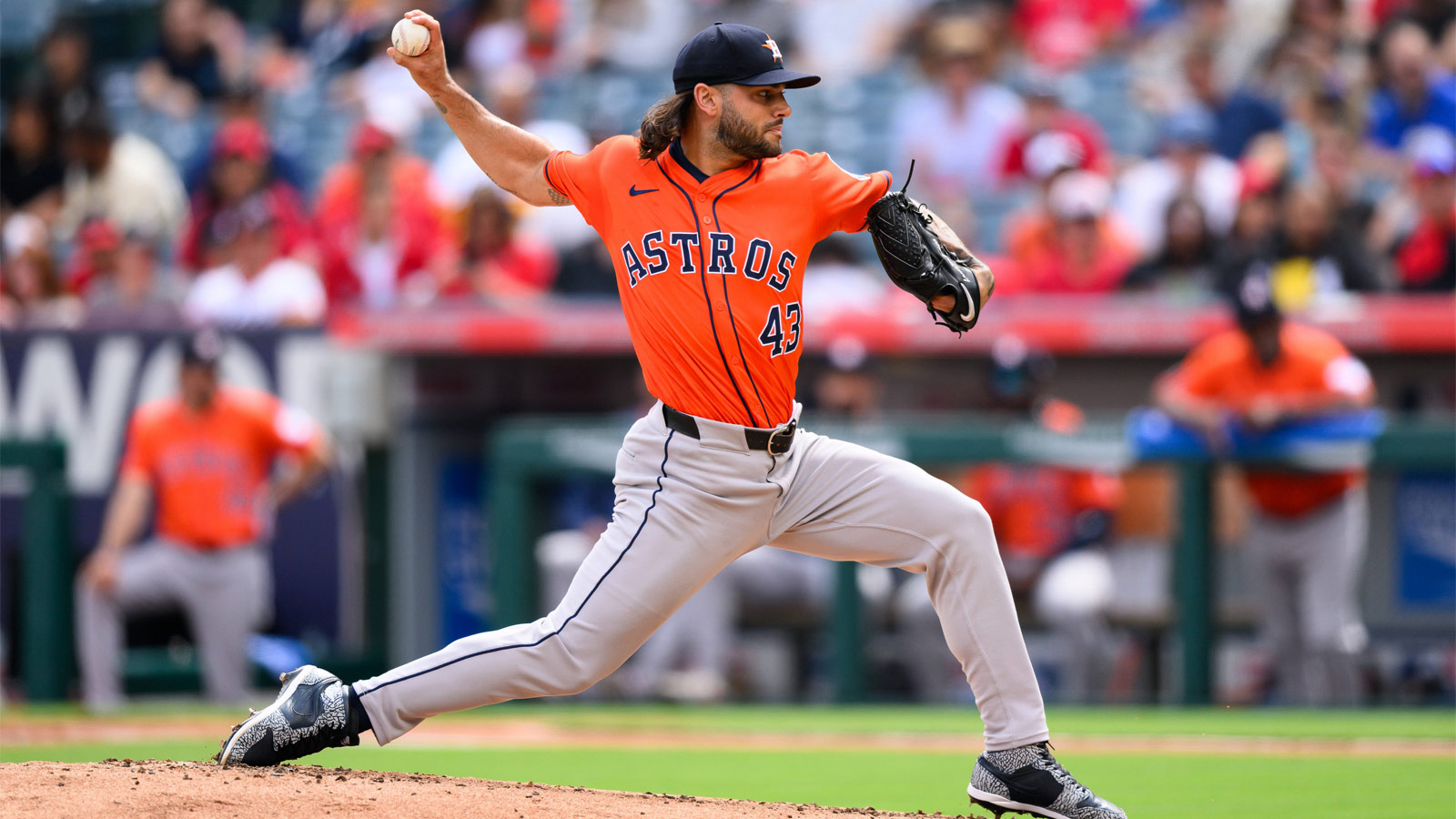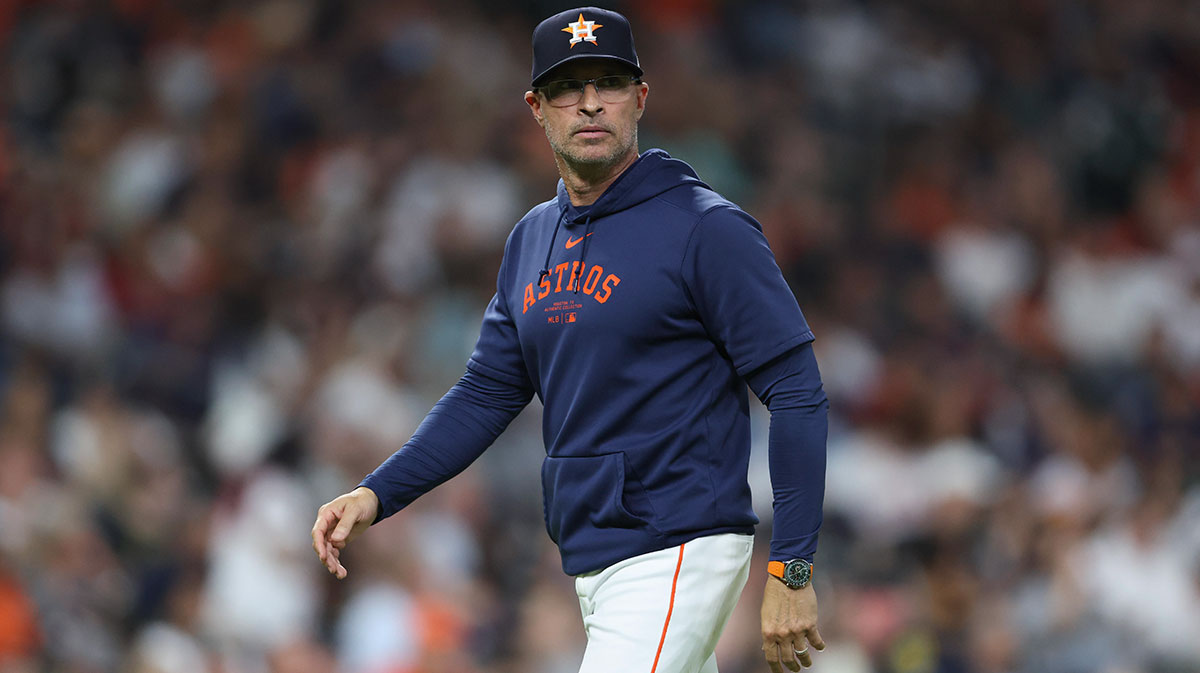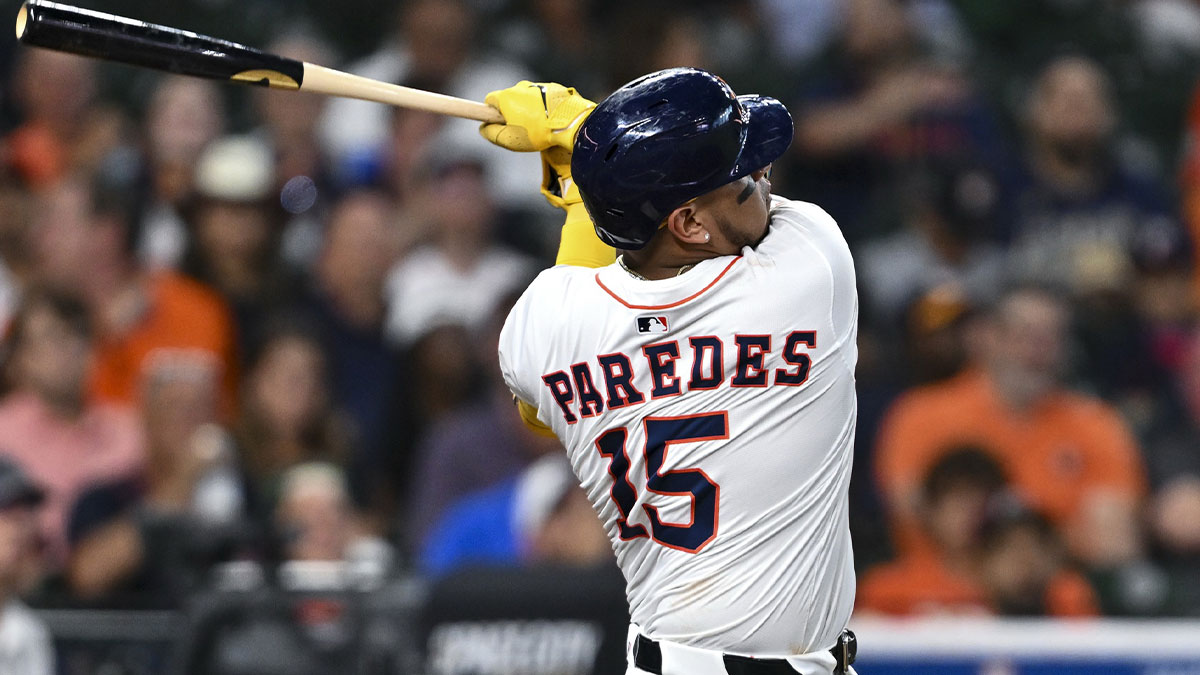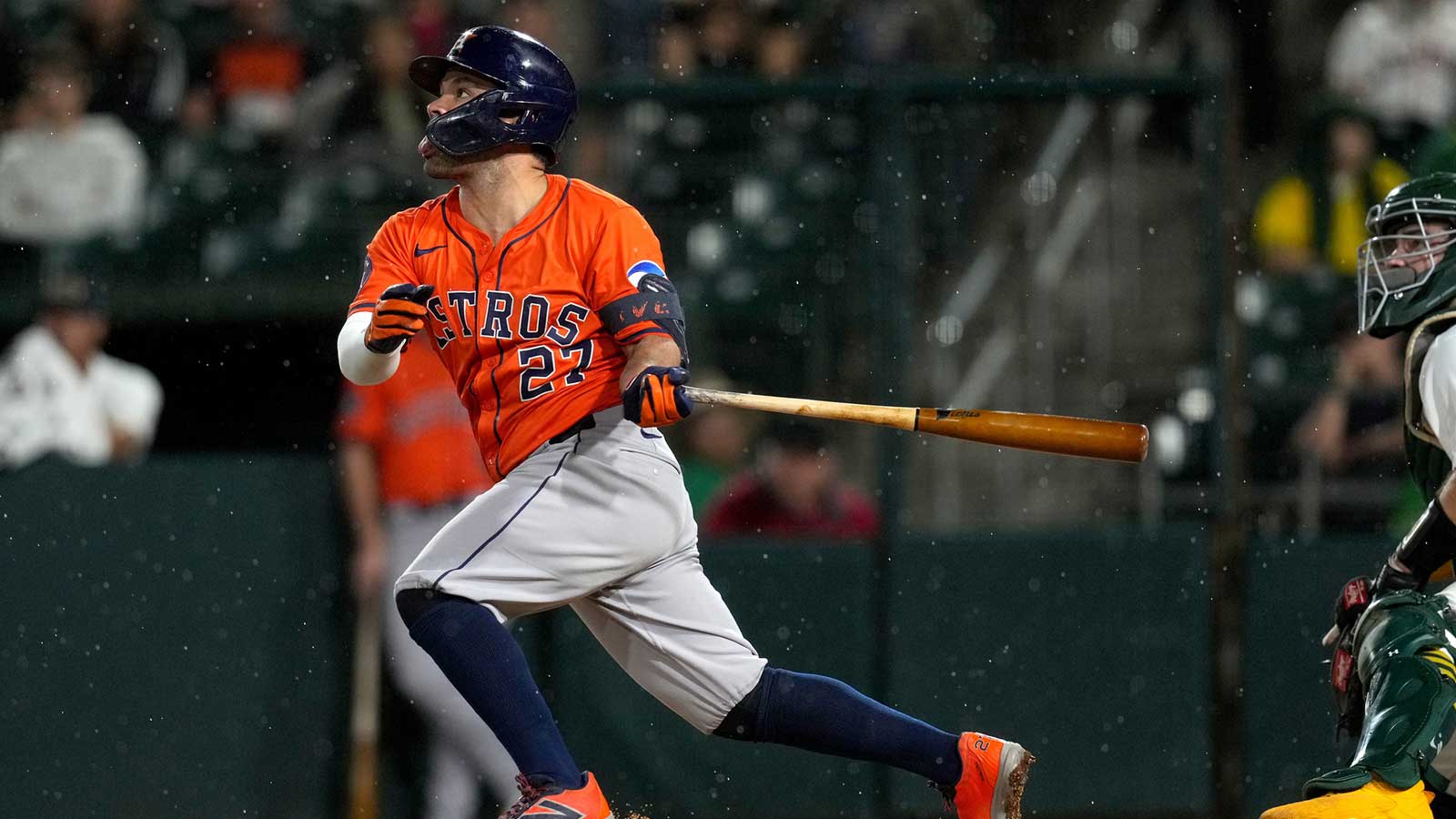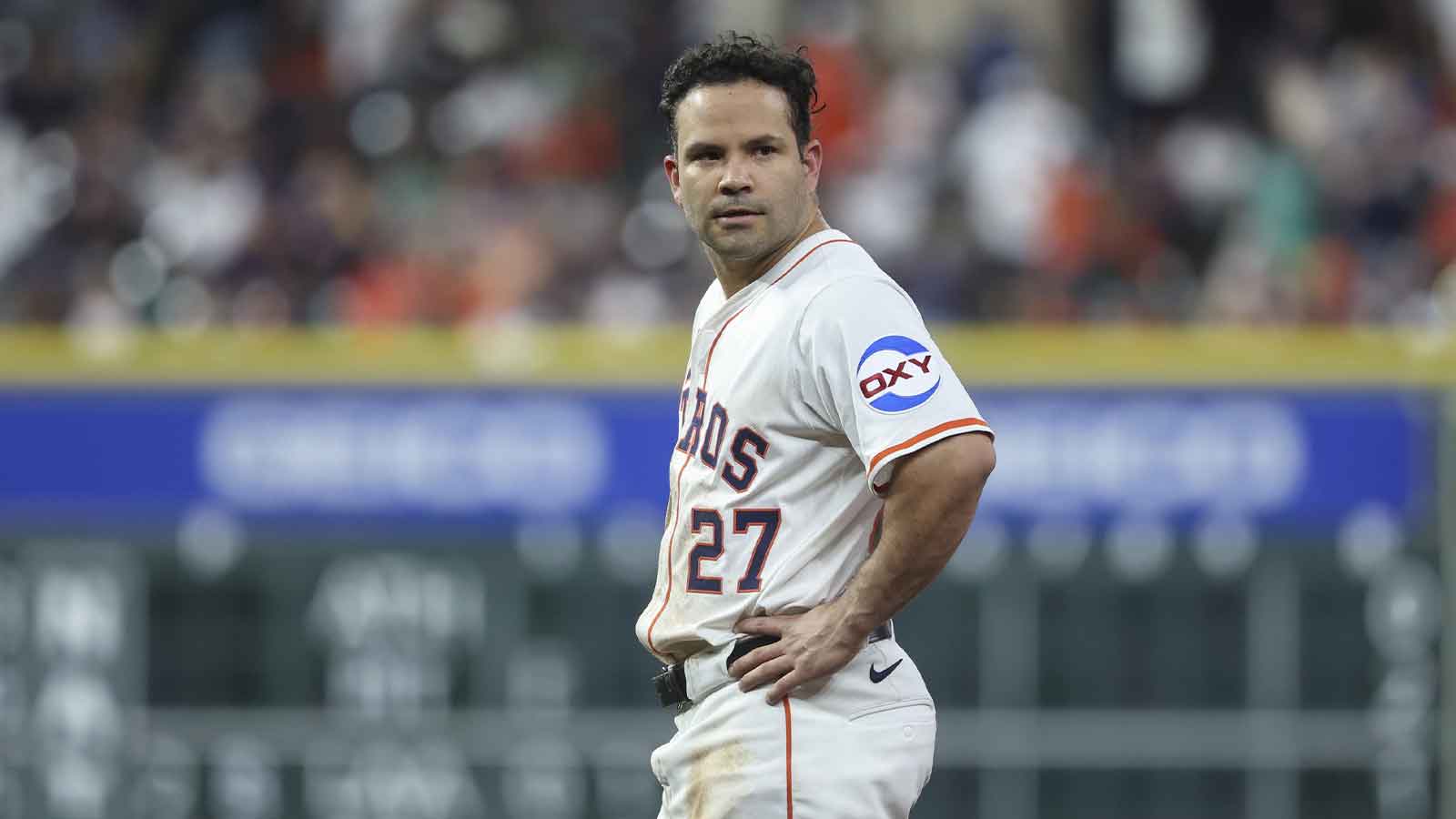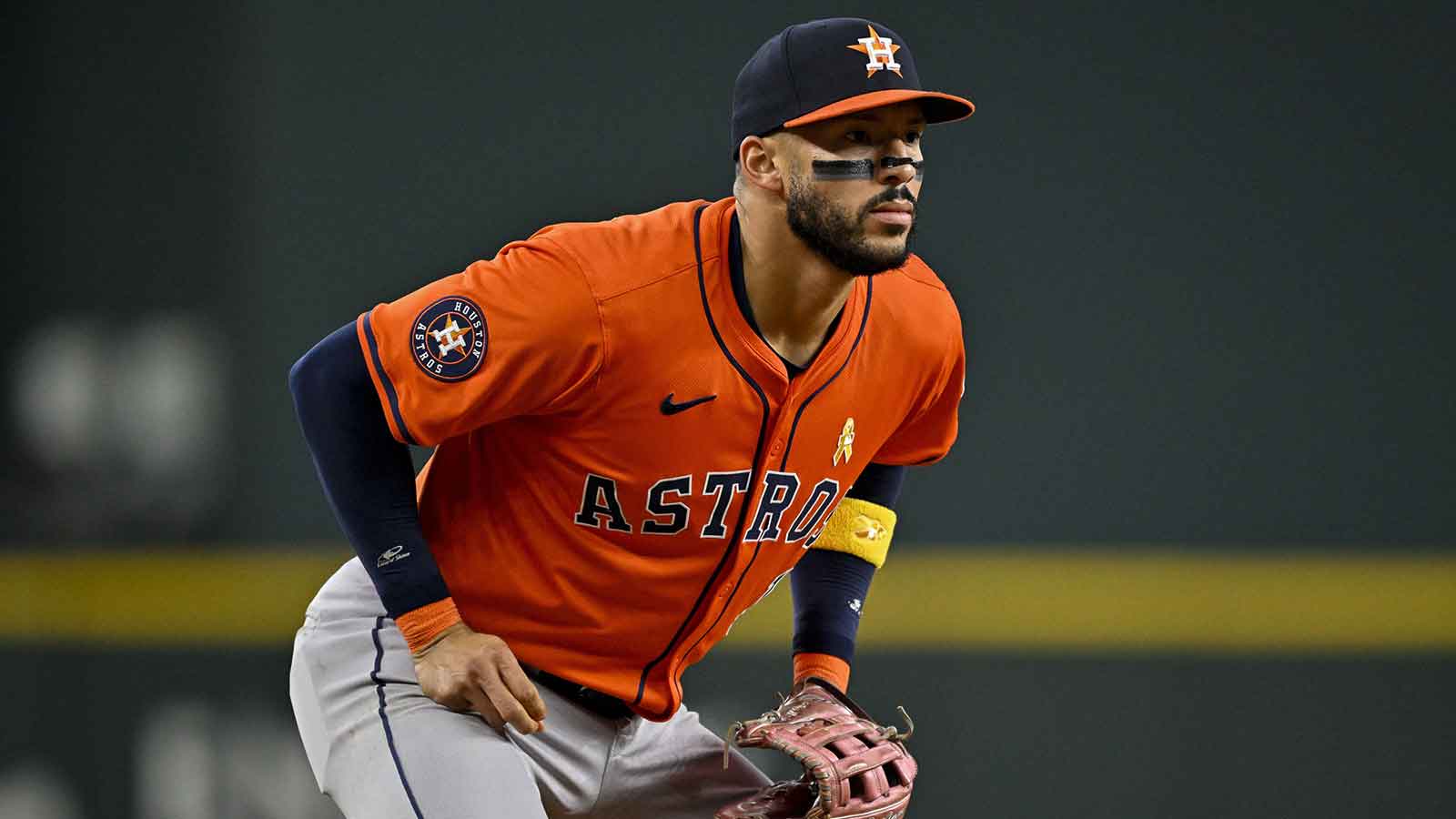As Major League Baseball approaches the All-Star break, the Houston Astros are surging. Yordan Alvarez is among the candidates to start at DH for the American League. But will he participate in the Home Run Derby?
Despite the high-profile nature of the Derby, it sounds like Alvarez will skip the event, per Chandler Rome of The Athletic:
“Through an interpreter, Yordan Alvarez said the Home Run Derby is “something I’m not super motivated to do at this moment.” Alvarez is one of two finalists to start the All-Star Game at DH for the American League.”
Alvarez is likely more locked in for the stretch run of the regular season. The Astros, once left for dead, have come storming back to come within three games of the Seattle Mariners for the top spot in the American League West.
When considering the injuries just to the Astros' rotation, it's no surprise that they've struggled this season. Jose Urquidy, Cristian Javier, Lance McCullers Jr., and Luis Garcia are all on the injured list right now. And joining them recently was veteran Justin Verlander.
From the beginning of the season until the end of May, the Astros had one of the worst rotations in baseball with an ERA of 4.77 and a league-worst walks per nine (4.05). But since June 1, they have a league-best rotation ERA of 3.21 with 12 quality starts and have improved their walks per nine to 23rd (3.29).
Framber Valdez, Ronel Blanco, and Hunter Brown have been phenomenal for Houston during this stretch. Brown in particular is 4-0 with a 1.16 ERA in 31 innings pitched and has a strikeouts-per-nine of 10.45.
This unit has been stopping the bleeding, limiting run scoring and enabling the Astros to get back in the mix.
Changes to 2024 MLB Home Run Derby
MLB announced changes to the All-Star staple on Monday. The main tweaks will limit the number of pitches each hitter can face in each round and reconfigure the opening round of the event.
In the first round and the semifinals, each hitter either gest 40 pitches or spend three minutes at the plate – whichever occurs first. Those numbers will shrink to 27 pitches and two minutes for the final round. Hitters will also get bonus pitches until they hit into three outs during the period, and a fourth out is given if the batter hits at least one home run that travels at least 425 feet during the period.
The previous Home Run Derby format had a time limit but didn't limit the number of pitches in an at-bat.
The other major change involves the opening round. Instead of head-to-head quarterfinal matchups, all eight contestants will compete against one another in the first round with the top four finishers moving on.
From there, batters will square off in head-to-head semifinals before the last two players standing square off in the final round for the Home Run Derby crown. Seeding for the semifinals will be determined by first-round scores.
If there is a tie with multiple players hitting the same number of homers in the first round, the tiebreaker will go to the player who hit the longest home run during the round. Ties in the semifinals and finals will be broken with a 60-second swing-off. If a tie remains after the swing-off, the batters will engage in successive three-swing swing-offs until a winner is determined.



